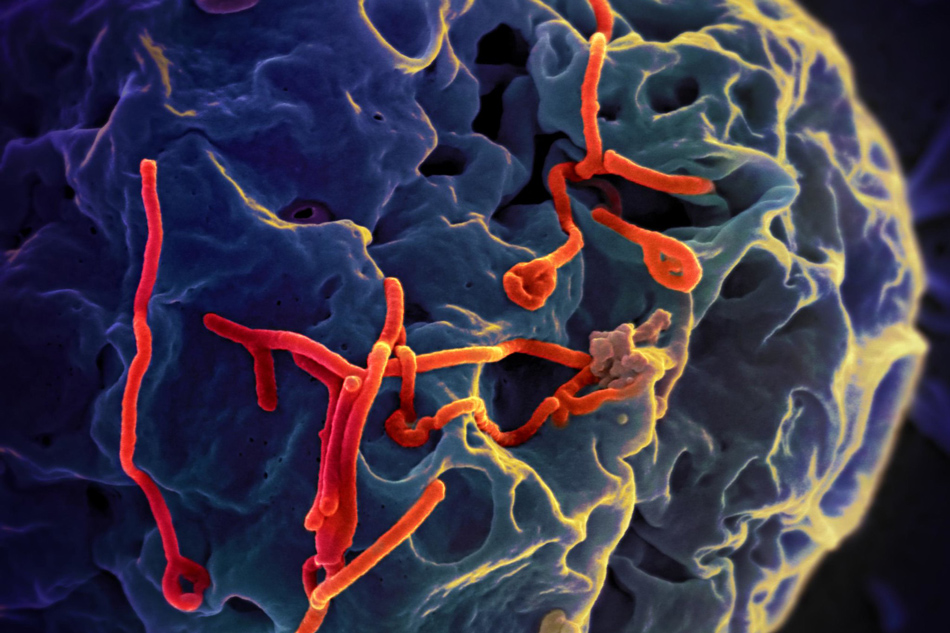Uganda confirms 6 more cases of Ebola: WHO | ABS-CBN
ADVERTISEMENT

Welcome, Kapamilya! We use cookies to improve your browsing experience. Continuing to use this site means you agree to our use of cookies. Tell me more!
Uganda confirms 6 more cases of Ebola: WHO
Uganda confirms 6 more cases of Ebola: WHO
Agence France-Presse
Published Sep 23, 2022 04:13 PM PHT
KAMPALA — Six new cases of Ebola have been found in Uganda, the World Health Organization said Thursday, after the country reported its first fatality from the highly contagious virus since 2019.
KAMPALA — Six new cases of Ebola have been found in Uganda, the World Health Organization said Thursday, after the country reported its first fatality from the highly contagious virus since 2019.
Uganda's health ministry declared an Ebola outbreak in the central district of Mubende on Tuesday, announcing the death of a 24-year-old man.
Uganda's health ministry declared an Ebola outbreak in the central district of Mubende on Tuesday, announcing the death of a 24-year-old man.
"So far, 7 cases, including 1 death, have been confirmed to have contracted the Sudan ebolavirus," the WHO said in a statement, referring to a relatively rare strain of the virus.
"So far, 7 cases, including 1 death, have been confirmed to have contracted the Sudan ebolavirus," the WHO said in a statement, referring to a relatively rare strain of the virus.
"Forty-three contacts have been identified and 10 people suspected to have caught the virus are receiving treatment at the regional referral hospital in Mubende," it said.
"Forty-three contacts have been identified and 10 people suspected to have caught the virus are receiving treatment at the regional referral hospital in Mubende," it said.
ADVERTISEMENT
"Our experts are already on the ground working with Uganda's experienced Ebola control teams to reinforce surveillance, diagnosis, treatment and preventive measures," said Abdou Salam Gueye, regional emergency director with the WHO Regional Office for Africa.
"Our experts are already on the ground working with Uganda's experienced Ebola control teams to reinforce surveillance, diagnosis, treatment and preventive measures," said Abdou Salam Gueye, regional emergency director with the WHO Regional Office for Africa.
Uganda -- which shares a porous border with the Democratic Republic of Congo (DRC) -- has experienced several Ebola outbreaks in the past, most recently in 2019, when at least 5 people died.
Uganda -- which shares a porous border with the Democratic Republic of Congo (DRC) -- has experienced several Ebola outbreaks in the past, most recently in 2019, when at least 5 people died.
The DRC last month recorded a new case in its violence-wracked east, less than 6 weeks after an epidemic in the country's northwest was declared over.
The DRC last month recorded a new case in its violence-wracked east, less than 6 weeks after an epidemic in the country's northwest was declared over.
Ebola is an often fatal viral hemorrhagic fever. The death rate is typically high, ranging up to 90 percent in some outbreaks, according to the WHO.
Ebola is an often fatal viral hemorrhagic fever. The death rate is typically high, ranging up to 90 percent in some outbreaks, according to the WHO.
First identified in 1976 in the DRC (then Zaire), the virus, whose natural host is the bat, has since set off a series of epidemics in Africa, killing around 15,000 people.
First identified in 1976 in the DRC (then Zaire), the virus, whose natural host is the bat, has since set off a series of epidemics in Africa, killing around 15,000 people.
ADVERTISEMENT
Human transmission is through body fluids, with the main symptoms being fever, vomiting, bleeding and diarrhea.
Human transmission is through body fluids, with the main symptoms being fever, vomiting, bleeding and diarrhea.
Outbreaks are difficult to contain, especially in urban environments.
Outbreaks are difficult to contain, especially in urban environments.
People who are infected do not become contagious until symptoms appear, which is after an incubation period of between two and 21 days.
People who are infected do not become contagious until symptoms appear, which is after an incubation period of between two and 21 days.
At present there is no licensed medication to prevent or treat Ebola, although a range of experimental drugs are in development and thousands have been vaccinated in the DRC and some neighboring countries.
At present there is no licensed medication to prevent or treat Ebola, although a range of experimental drugs are in development and thousands have been vaccinated in the DRC and some neighboring countries.
The worst epidemic in West Africa between 2013 and 2016 killed more than 11,300 alone. The DRC has had more than a dozen epidemics, the deadliest killing 2,280 people in 2020.
The worst epidemic in West Africa between 2013 and 2016 killed more than 11,300 alone. The DRC has had more than a dozen epidemics, the deadliest killing 2,280 people in 2020.
RELATED VIDEO
ADVERTISEMENT
ADVERTISEMENT



